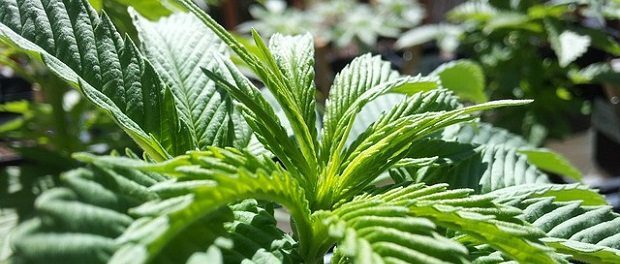[dropcap style=”font-size:100px; color:#992211;”]I[/dropcap]ncrease CO2 uptake for more efficient photosynthesis. Makes perfect sense on a biological level.
The Lilliput paradigm – make two ears of corn grow where once only one stood. Not bad for a 17th century satirist. Not so apt for out current times.
We have all the food we need. We just don’t get it to the people who need it.
Crops with improved yields could more easily become a reality, thanks to a development by scientists.
Researchers studying a biological process that enables tiny green algae to grow efficiently have taken the first steps to recreating the mechanism in a more complex plant. Their findings could lead to the breeding of high yield varieties of common crops such as wheat, rice and barley.
Algae cells are known to have a specialised mechanism that boosts their internal concentration of carbon dioxide during photosynthesis. This process supports other mechanisms that convert this store of carbon into the sugars the cells need to grow.
Many staple crops, and nearly all vegetables, have a less efficient method of photosynthesis. They cannot actively raise their internal concentrations of CO2 in the same way as algae. If crops could be developed using the concentrating mechanism found in algae, they could have a much higher yield than existing varieties.
Plant experts at the University of Edinburgh studied components in algae that play a role in photosynthesis and found that they could function normally in other types of cells. They then transferred the components to tobacco and cress plants, and found that the parts were able to locate at the correct places in the new cells.
Scientists were able to pinpoint the most critical components involved in efficient plant growth, and to gauge what further research might be needed for improved crops.
The study, carried out in collaboration with the University of Cambridge, the John Innes Centre and the Carnegie Institution for Science, was supported by the Biotechnology and Biological Sciences Research Council. It is published in Plant Biotechnology Journal.
Dr Alistair McCormick, of the University of Edinburgh’s School of Biological Sciences, who led the research, said: “Simple plants such as algae are very good at fixing carbon from the air, compared with complex plants such as rice and wheat. If we can harness the systems that simple plants use to grow efficiently, we may be able to create highly productive crops.”
Source: University of Edinburgh
Inset image by Dr. Alistair McCormick depicts Arabidopsis, as used in the experiment.

Some of the news that we find inspiring, diverting, wrong or so very right.





















